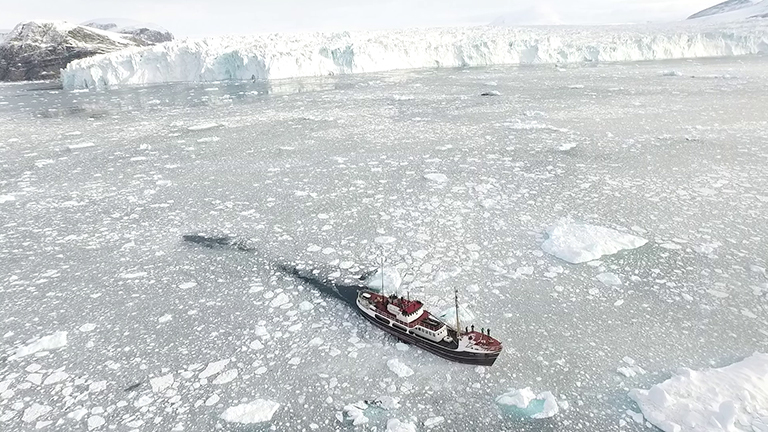The territory is located in the Arctic Circle, where climate change is opening up new shipping and mining possibilities.
Here are two pieces of news that probably won’t surprise you. Number one: the President of the United States threw a tantrum and called another country’s leader “nasty”. (He had implied he wanted to buy the territory of Greenland off Denmark, their PM said that was “absurd”.) Number two: the Arctic, including the ice sheet that makes up most of Greenland, is melting.
What’s the link? Well, the more the Arctic melts, the more economically valuable it becomes to some people. And owning territory in the area helps people (and countries) capture some of this value by giving them both proximity and legal rights to some of its riches. What riches? Well, for one, as the ice shrinks it becomes easier/possible to get ships through the Arctic, which means goods can be moved from some parts of the world to others much more quickly. That saves time (good for impatient buyers), money (good for companies, and customers if they pass those savings on) and fuel emissions (good for the environment).
Disappearing ice also opens up access to lots of natural resources that were previously difficult to get to: things like oil, gas, platinum, nickle and diamonds. The sort of resources, in other words, that both make their finders rich and ensure that consumers all over the world can keep owning desirable things, like smartphones and engagement rings, that require these non-renewable components.
Of course, the release of a bunch of melted ice into the sea also means sea levels are going to rise, which means a lot of land is going to be flooded. Likely to be directly affected: the 140 countries with a coastline, the two-thirds of the world’s big cities that are situated on the coast, and the one billion people who live less than ten metres above sea level. So like many things in life, allowing the Arctic to shrink will result in both good and bad economic consequences. It’s up to the human race to decide which are more important.
Read our explainer on: what the environment has to do with the economy.

